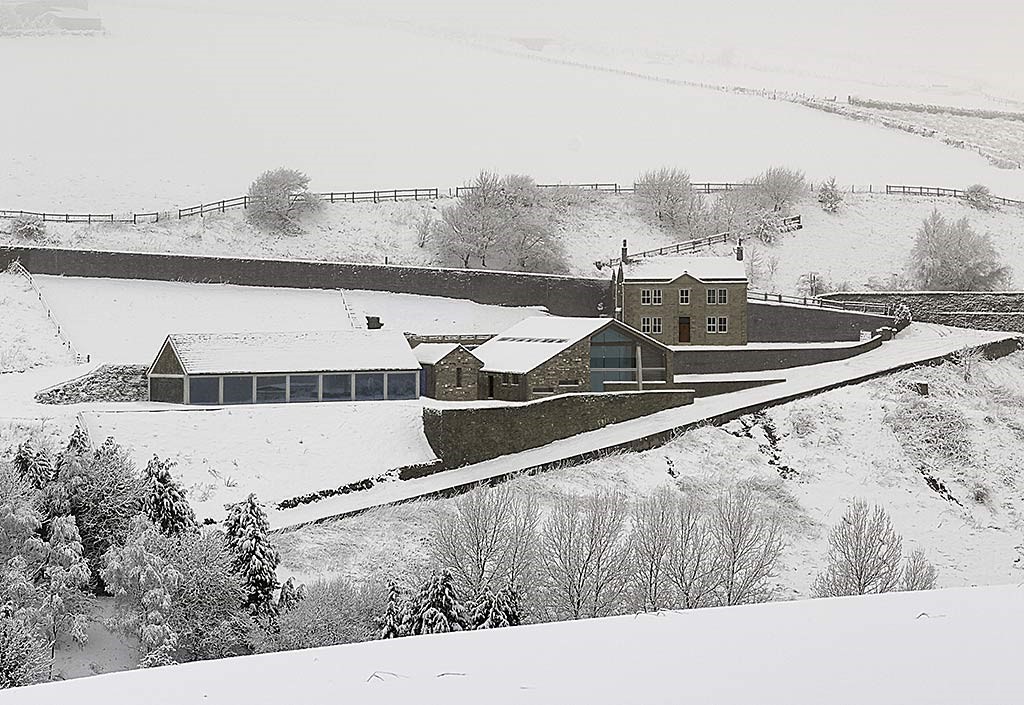How Much Does A House Renovation Cost?
The cost of renovating a house can vary significantly depending on various factors such as the size of the property, the scope of work, location, materials used, and the level of finishes desired. On average, homeowners in the United Kingdom can expect to spend anywhere from £50,000 to £100,000 for a moderate renovation project. However, high-end renovations, full house reformulations or extensive structural changes including house extensions can easily cost over £250,000.
What Costs The Most When Renovating A House?
- Extending and Structural Changes: Altering the layout or adding extensions often commands a substantial portion of the budget due to extra space that is being created and the involvement of architects, structural engineers, and construction teams.
- Kitchen and Bathrooms: These are the focal points of any home and tend to be the most expensive areas to renovate due to the cost of fixtures, fittings, and labour.
- Finishes and Materials: Opting for high-quality materials and luxurious finishes can significantly drive up costs. Flooring, cabinetry, countertops, and tiles are areas where expenses can quickly add up.
- Electrical / Mechanical Systems: Upgrading electrical, plumbing, heating, ventilation and air condition systems may not be as visually striking as other renovations, but they are essential for the functionality and safety of the home.
- Professional Fees: Don’t overlook the expenses associated with hiring architects, engineers, and contractors. These fees can contribute to the overall cost of the project.
- Unforeseen Expenses: Contingency funds should be allocated for unexpected discoveries during renovation, such as hidden structural issues, outdated wiring, or plumbing problems, which can significantly impact the overall cost.
In What Order Do You Renovate A House?
- Measured Survey: Conduct a thorough measured survey of the property to gather accurate dimensions and structural information. This serves as the foundation for preparing drawings and designing the renovation layout.
- Architectural Work: Develop a conceptual design based on the measured survey, your renovation goals, accommodation requirements and aesthetic preferences. Then progress detailed architectural drawings including floor plans, elevations, and sections based on the conceptual design, plus 3d cad modelling if required. Obtain necessary planning approval from local authorities, develop detailed drawings and specifications and submit a building control application. The architectural drawings serve as a guide for construction and ensure that all aspects of the renovation are accurately represented. Undertake your comprehensive renovation plan in collaboration with Andrew Wallace Architects and Interior Designers.
- Structural Planning: Collaborate with structural engineers, via the architect, to develop the structural design. This step ensures that the renovation plans comply with building regulations and safety standards.
Working with the architect, structural engineer and builder, together they will work through the following typical steps:
- Assessment and Demolition: Begin the renovation process by assessing the condition of the property and identifying your renovation goals. Then, proceed with demolishing any existing structures or interior elements that are being replaced.
- Structural Work: Address any structural issues such as framing, roofing, and foundation repairs or reinforcements or make necessary alterations to the layout before proceeding with cosmetic upgrades.
- Electrical and Mechanical Systems: Upgrade electrical, plumbing, heating, ventilation and air condition systems to ensure they meet current safety standards and accommodate any layout changes.
- Interior Renovations: This includes renovating kitchens, bathrooms, flooring, and walls. Focus on areas that have the most significant impact on functionality and aesthetics.
- Exterior Renovations: Enhance your property with landscaping, exterior cladding, roofing, and windows.
- Finishing Touches: Install fixtures, fittings, and decorative elements to add personality and style to the space.
- Final Inspections and Clean-Up: Conduct thorough inspections to ensure compliance with building regulations. Complete any remaining touch-ups and cleaning before unveiling the renovated home.
What Renovation Adds The Most Value To A Home?
- Adding space: Expanding living space through modern light filled extensions or converting unused areas like basements or lofts into functional rooms can significantly increase the home’s value per square metre and attracting buyers seeking more space, but equally if you do not intend to move on, extending gives you the chance to fundamentally change the way your house functions to better suit the way you live.
- Kitchen Remodel: Modernising the kitchen with high-quality appliances, updated cabinets, and countertops not only enhances functionality but also significantly boosts the overall value of the home.
- Bathroom Renovation: Upgrading bathrooms with modern fixtures, luxurious showers or tubs, and stylish tiles can greatly appeal to potential buyers and increase the property’s value.
- Energy-Efficient Upgrades: Installing energy-efficient features such as LED lighting, smart thermostats, insulation and high-efficiency appliances not only reduces utility bills but also adds value by showcasing the home’s sustainability and cost-saving benefits.
- External Enhancements: Investing in landscaping, exterior façade treatments, and improving the overall appearance of the home’s exterior can make a strong first impression, increasing overall property value.
- Updating Windows and Doors: Replacing old windows and doors with energy-efficient models not only improves aesthetics and security but also enhances insulation and soundproofing, thereby adding value to the home.
- Modernising Interior Features: Upgrading interior features such as flooring, materials, lighting fixtures, and paint can refresh the overall look and feel of the home, appealing to modern tastes and increasing its marketability and value.
How Much Should I Save For A Home Renovation?
It’s recommended to set aside at least 10-20% of the total property value for renovations. However, high-end renovations or house extensions can easily escalate the costs to well over 30-50% of the total property value. For more accurate estimates, consult with architects, quantity surveyors, contractors, and other professionals to develop a budget based on your specific requirements and priorities.
High End Residential Architects: Andrew Wallace Architects
At Andrew Wallace Architects, we specialise in creating bespoke architectural solutions tailored to our clients’ unique visions and lifestyles. With a focus on high-end residential projects, we combine innovative design, craftsmanship, and attention to detail to bring your dream home to life. From concept to completion, we are committed to exceeding your expectations and delivering exceptional results that stand the test of time.
In conclusion, embarking on a house renovation journey can be both exhilarating and daunting. By understanding the costs involved, prioritising key areas of investment, and following a strategic renovation plan, you can achieve the transformation you desire while maximising the value of your investment. With the expertise and guidance of experienced professionals like Andrew Wallace Architects, your dream home is within reach.
Contact us today to discuss how we can tailor our services to meet your specific requirements.
Contact Andrew Wallace Architects

